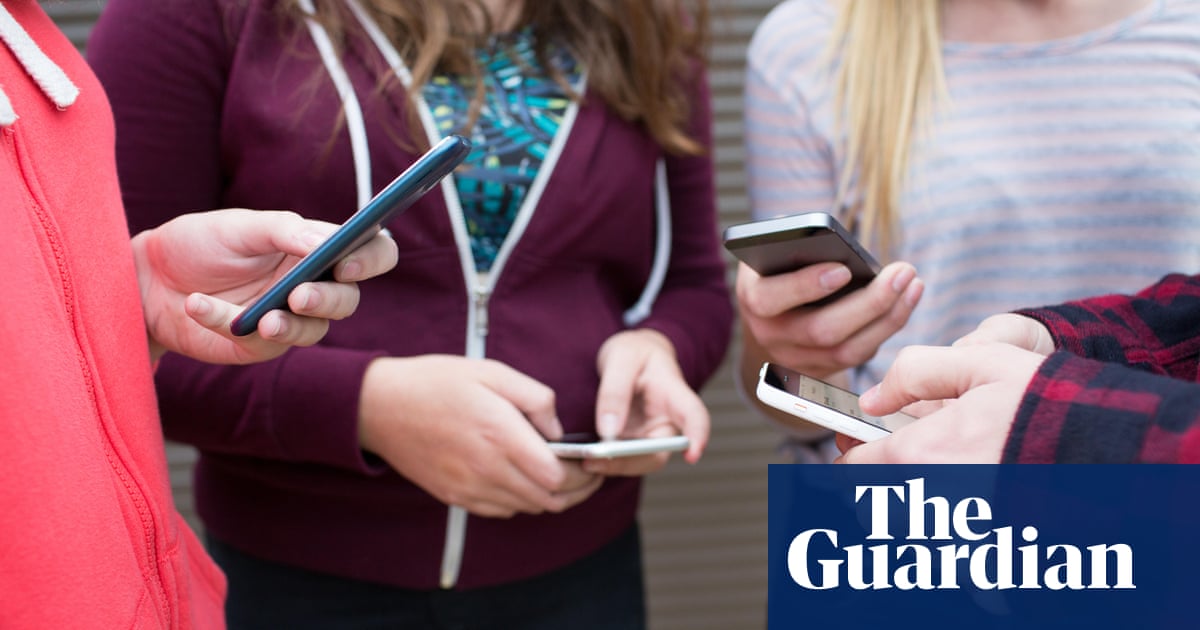Photo credit: www.theguardian.com
Government Reassesses Smartphone Bans in Schools Amid Ongoing Debate
Bridget Phillipson, the UK’s Education Secretary, has announced plans to reevaluate the existing restrictions on smartphone use in schools amid increasing pressure from Members of Parliament regarding the influence of social media on youth. This initiative comes as part of a concerted effort to address concerns about how technology impacts teenagers’ behavior and well-being.
The Department for Education is set to embark on a focused monitoring initiative involving select schools to gauge the effectiveness of the current guidance on smartphone bans. For the first time, officials will conduct a comprehensive analysis of the National Behaviour Survey in schools, aiming to identify the most effective strategies for enforcing these bans and the hurdles schools are currently encountering.
Under the current guidance, schools are advised to prohibit mobile phone use during the entire school day, including breaks and lunchtime. However, the lack of specific enforcement mechanisms has led to challenges in implementation.
Sources indicate that Phillipson has expressed frustration over the absence of monitoring related to the adherence to this guidance and its efficacy in real-world applications within schools. The new assessment will examine compliance rates among schools, the specific measures they employ—such as requiring students to store phones in lockers—and the broader impact on student behavior.
A government source commented on the situation, emphasizing the need for accountability among schools: “It is surprising that while the Conservative government claimed to ban phone usage, there was no follow-up to ensure adherence to the guidance. We must guarantee it is applied consistently to foster a phone-free environment in schools.”
In a recent session in the House of Commons, Keir Starmer remarked that he has been viewing the series “Adolescence” on Netflix alongside his teenage children. The series delves into the consequences of online misogyny and the tragic story of a family impacted by violence, prompting MP Anneliese Midgley to urge the Prime Minister to take stronger measures against online radicalization of young men.
Jack Thorne, the writer of “Adolescence,” has called for screenings in Parliament and advocates for stricter regulations on social media platforms to protect young teens. The issue remains polarizing within the Cabinet, with some ministers insisting on the necessity of further measures concerning youth engagement with social media.
Following the introduction of Labour’s proposal by Josh MacAlister earlier this year, which sought to restrict Instagram and TikTok algorithms targeting young users, there has been contention over the government’s direction on these matters. Technology Secretary Peter Kyle, however, appears to favor an approach that emphasizes self-regulation over stricter regulatory action.
Phillipson’s authority largely pertains to school policies regarding mobile phones, though Health Secretary Wes Streeting advocates for more decisive action due to the mental health implications linked to social media use.
Shadow Education Secretary Laura Trott has stated that banning smartphones from schools is an obvious solution. She acknowledged that the previous guidance from the Conservative government has fallen short, resulting in an ongoing issue of smartphone use during classes.
This week, the Conservatives proposed an amendment to the schools bill that would enact a comprehensive ban on smartphone usage, although this was ultimately rejected by the government. Trott defended the amendment against accusations of being a mere publicity stunt, asserting that there is widespread support among parents, educators, and students for the initiative.
Recent polling by Ipsos revealed that nearly half of the UK population supports a total ban on smartphones in schools, with a significant portion of parents reporting that their child’s school lacks such a policy.
Initially, MacAlister’s bill sought to prohibit addictive algorithms targeting adolescents and aimed to provide headteachers with the authority to enforce mobile phone bans. However, due to political negotiations, the bill was considerably diluted, now primarily focusing on additional research without mandating direct actions from tech companies or schools.
Critics, including former Education Secretary Kit Malthouse, have labeled these changes as a significant setback, criticizing the amendments as a reduction of what could have been groundbreaking legislative progress in addressing this pressing issue.
Source
www.theguardian.com

